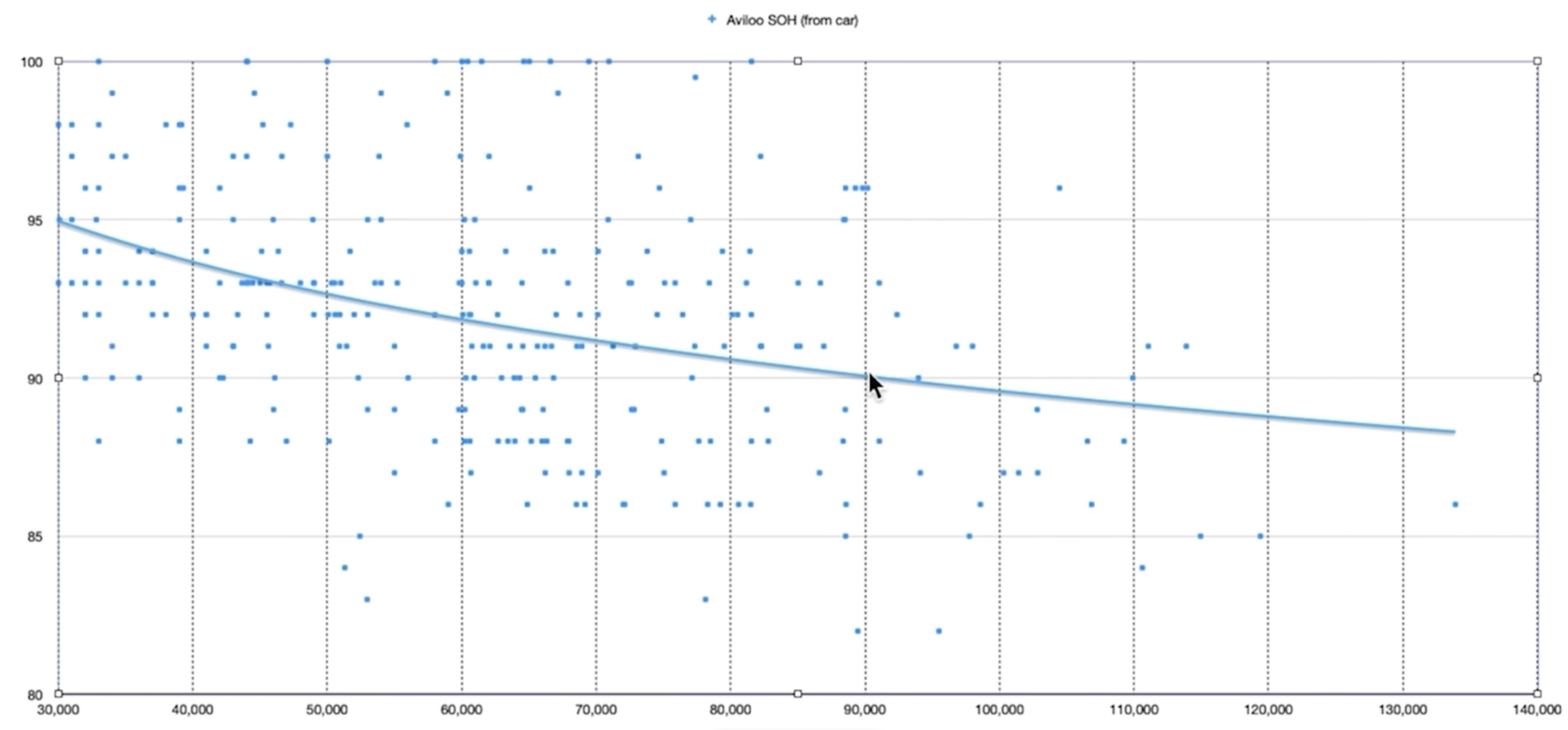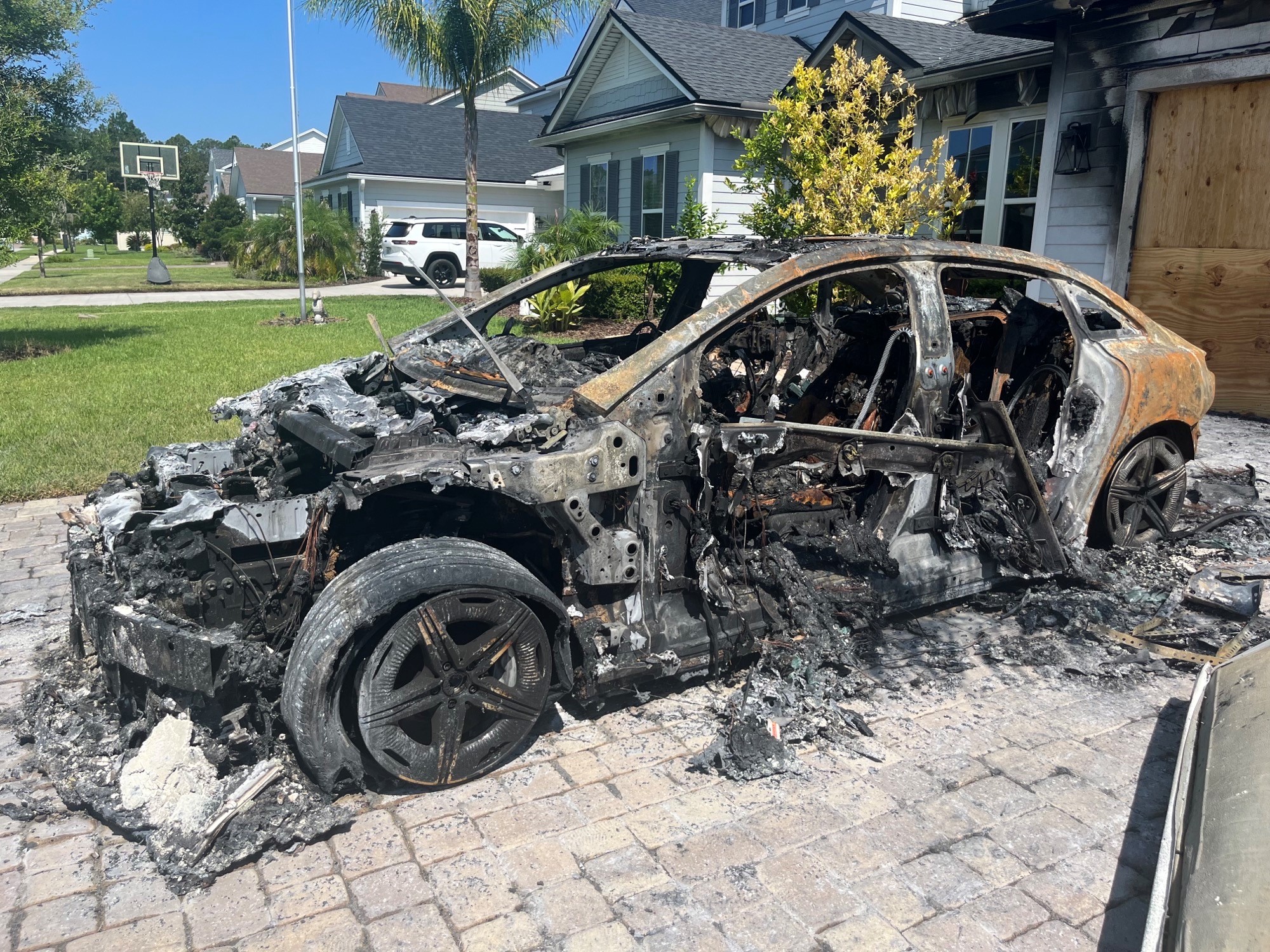Not by very much.

Posted on 03/19/2025 6:57:56 AM PDT by SeekAndFind
BYD (BYDDF, Financials) introduced a new electric vehicle platform reportedly capable of reaching charging speeds of up to 1,000 kilowatts, twice the capacity of Tesla's (TSLA, Financials) latest 500 kW superchargers. Shares rose as much as 6.0% to a record HK$408.80 ($52.61) early Tuesday before paring gains to 3.2%.
The breakthrough represents a turning point in the EV sector as it lets cars go 400 kilometers (249 miles) after a five-minute charge.
Addressing a major issue among EV buyers, the Chinese automaker's "super e-platform" seeks to lower charging time to levels similar to gasoline filling. Han L sedan and Tang L SUV will be the first to adopt the technology, starting at 270,000 yuan ($37,328.91).
With projections of 56 million sales in 2025 and 4.2 million cars delivered in 2024, BYD intends to introduce 4,000 ultra-fast charging stations all throughout China.
The action coincides with rising Chinese automakers investing in charging infrastructure. Up until recently, BYD owners had depended on outside charging stations run by rivals.Since 2014, Tesla has set up superchargers in China, therefore establishing early presence in the market. High-speed charging networks are becoming more and more important as competition rises in order to hasten EV acceptance.
(Excerpt) Read more at finance.yahoo.com ...
Transferring all that energy into a confined space very quickly just might go boom. Now if this device really worked, was compatible with the existing electrical generating and transmission systems, then the manufacturer would be selling the systems around the world. Like every other new product extensive use by consumers would reveal the truth.
“And spent batteries will leave behind a staggering environmental disaster that has to be dealt with.”
‐——————
Do you have electric vehicle batteries that need recycling? Battery Recyclers of America provides next-day pickup of electric vehicle batteries in all 50 states.
https://www.batteryrecyclersofamerica.com/electrical-vehicle-battery-recycling/
Not by very much.

” keep yelling people that almost half the hones in this country still gave a 60 A service.”
In many threads we have asked for a valid link for this claimed statistic.
I have never seen 60 amp service ,I own five homes that range in age from 1900s till 2018. Even the farm house in rural South Texas had 100 amp service originally and was upgraded in the 1980s to 200 amp.
Ever other home I own and have ever seen has 200 amp plus. My largest home has three buildings on property the largest has 400 amp service and my steel building has triple phase 480V at 300 amps. Which also where the grid tie inverters and powerwalls are too.
Again where in bubble F nowhere does 60 amp even exist. Code for the last 20 years has been 200 amp 240v. 100 minimum for any sale on a mortgage as not insurance company will ensure below 100amp service.
Seriously there is no way no how half of American homes have 60 amp service. Given that NEC code for 20+ years is 200 it’s impossible for your standing to be true.
That is the way it started out on FR. Just stop subsidies.
However that seemed to slowly morph into hating the whole EV and solar industry.
I have a picture from a few years back during an electrical power outage in NH. It was a Tesla being charged by a gasoline generator in their driveway.
Is there ANY mention of the DAMAGE done to the battery with this fast charging? The damage is significant.
Also, to this day, the recommendation for ultimate battery care is only charge to 80%, and do not let it get below 20%.
“Transferring all that energy into a confined space very quickly just might go boom. Now if this device really worked, was compatible with the existing electrical generating and transmission systems, then the manufacturer would be selling the systems around the world. Like every other new product extensive use by consumers would reveal the truth.”
We already have 600 kw chargers in place in the US and they don’t go boom.
Doesn't it hurt a battery to crank up the charging voltage too high?
“Is there ANY mention of the DAMAGE done to the battery with this fast charging? The damage is significant.”
It’s long been believed that the high amount of energy, so quickly deployed, when fast charging an EV must have the side effect of degrading the battery more quickly than would the use of a slow charger. A new study concludes that that isn’t the case after all.
The experts at Recurrent studied fast charging on more than 12,500 Tesla vehicles in the US, comparing cars that fast charge at least 90% of the time with those that fast charge less than 10% of the time. Their results showed no statistically significant difference in range degradation between the two groups of Teslas.
https://www.batterytechonline.com/charging/report-supercharging-doesn-t-degrade-tesla-battery-life
“71% of EV owners also own gas car”
Yup Tesla 3 & Model Y, F250 Diesel, Expedition 4x4 ecoboost recently sold my S60 which was and will be my last ICE sedan. The trucks get kept to do truck things and truck things only.
FSD and DFW biblical gridlock is why I first looked at the Model 3. Then when I realised it was like getting 30 cent per gallon gasoline on per mile of energy consumption basis the economics instantly made sense. It has a payment half the Volvo it replaced so from mile one it was already less expensive capex and since fuel and maintenance are o me tenth it was a no brainer. It’s a lease so the battery is irrelevant it gets turned in and a brand new one takes it place next year. If the pack fails its under warranty with the option to just roll the lease to a new one. Same for the Model Y which is being used for Uber Black by one of my undergraduates I employ as a driver. I had the capital and credit rating he has the labor. It turns a profit just barely but it’s a free SUV for me the 4 days he doesn’t use it for Uber Black.
EVs are the near perfect suburban and urban commuter car. My 3 routinely gets taken 125 miles to Ft Worth and back much further than the average American commute of 40 miles or under. Most people as in 96% drive less than 30 miles per day and go 400 miles from home less than twice a year. That’s just the product of the majority of the U.S. Population living in urban statistical census areas and by most I mean 75%. We are a urban nation regardless of what the flyover country folks think they make up less than 10% of the population, the other are in suburbs and exurbs not more than 50 miles from a major urban area.
A 100 mile EV covers 96% of all trips taken and for the average urbanite all but two of there trips per year. You rent a car for edge cases that’s solid fiscal logic. You can rent a full sized sedan with unlimited mileage for $25 per day as a retail customer or $180 a week with a loyalty or corp membership. Even a two week vacay road trip cross country makes $$$ sense to rent and put the miles on someone else depreciating asset. This is freshmen economics 1101 stuff.
Interesting. I’d never heard of that company. Getting rid of old batteries is a pain in the neck. I’ve got some old ones from Uninterruptible Power Supplies for my security system and video servers. I’ve been dropping them off at the hazardous waste station at our local waste disposal station.
They are rather lean and vague on how they actually recycle batteries.
“Getting rid of old batteries is a pain in the neck”
I drop mine off at Lowes.
That can work! Although sometimes it doesn't.

Kelly Blue Book reported on findings from a study that shows EV are actually less likely to cause or be involved in fires than gasoline-powered or hybrid vehicles.1 Data from the National Transportation Safety Board showed that EVs were involved in approximately 25 fires for every 100,000 sold. Comparatively, approximately 1,530 gasoline-powered vehicles and 3,475 hybrid vehicles were involved in fires for every 100,000 sold.
https://www.fairfaxcounty.gov/environment-energy-coordination/climate-matters/EV-less-fire-risk
“Lowes”
Thanks. I didn’t know they took them back. Our local Ace Hardware store used to take small batteries. Not sure if they still do that.
My iPhone 12 battery is at 73% of its original storage capacity. But it sure feels like it is at 30% the way it drains down.
My Samsung S21 was still going strong after 4 years and I charged it to 100%.
My iPhone 12 is about 4 years old. I charge it every night on a Mophie wireless charger on the nightstand. Every morning it’s at 100%. If I use it a lot, it’s down to 40% remaining by noon. It still works well (except of a partially failed speaker for the phone — very low volume).
“If I use it a lot, it’s down to 40% remaining by noon. “
I have a new S25. I reduced the screen resolution without a noticeable difference.
It has a quick option to turn battery saving on/off. Dark blue screen with white text.
Have been accessing my phone for three hours and it is at 89%.
Disclaimer: Opinions posted on Free Republic are those of the individual posters and do not necessarily represent the opinion of Free Republic or its management. All materials posted herein are protected by copyright law and the exemption for fair use of copyrighted works.